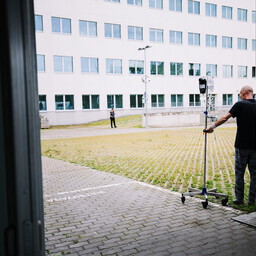When a person's body does not have enough strength to withstand stress, they are frail. A study conducted at the University of Tartu showed that frail patients have a harder time surviving major surgeries.
Some 80-year-olds are very healthy, but young people can also be frail. Worldwide, one in five people over 65 is frail. There is more frailty in Eastern Europe than in Western Europe.
Karl-Gunnar Isand studied the impact of frailty on patients who needed major abdominal surgery. He reviewed data from over 1800 patients. He found that frailer patients had worse outcomes.
After surgery, patient mortality was measured over 30 days and six months. Frailty affected mortality both in the short and long term. The frailer the patient, the higher the mortality.
Frailer patients had more complications and stayed in the hospital longer. They also required more assistance in recovery. After six months, frailer patients had a greater need for nursing homes.
Previous studies show that patients want to maintain their independence and live at home. They want to preserve their quality of life.
Risk factors for frailty are related to lifestyle. Healthy eating, exercise, and good relationships reduce the risk of frailty. Frailty is more common in countries with low income and education levels.
Research on frailty began in geriatrics. Frailty is not always age-related. It is also not a continually worsening condition.
Today, it is possible to reduce frailty before a major surgery. Frailty is partially reversible, but prevention is better.
Karl-Gunnar Isand defended his doctoral thesis at the University of Tartu.

